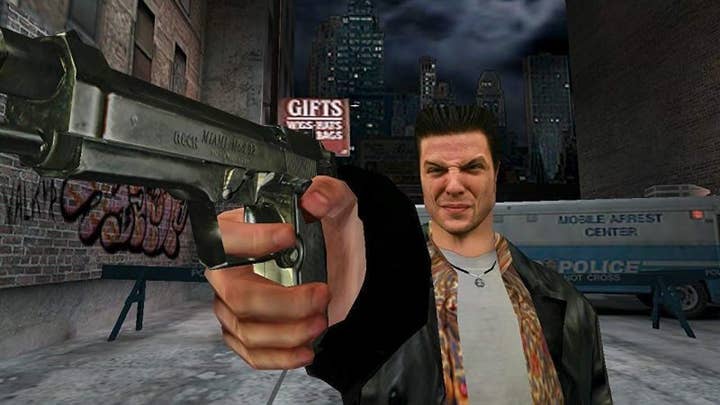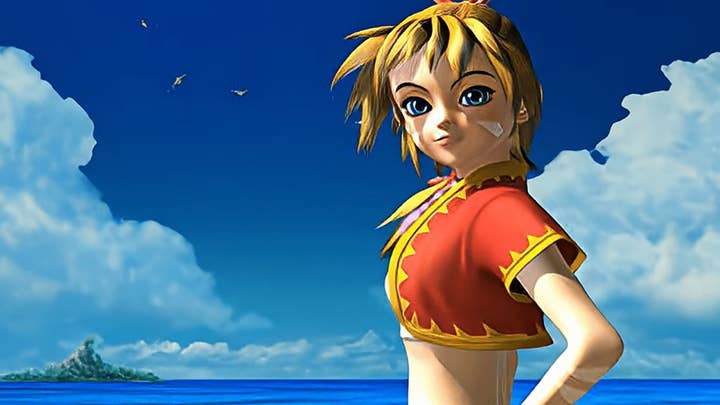The 20-year nostalgia window | Opinion
With 2001's Max Payne the latest classic title to be slated for a full AAA budget remake, are the economics of the industry's remake boom starting to look precarious?
With the immense success of Capcom's Resident Evil 2 and 3 remakes and Square Enix' even more ambitious Final Fantasy VII remake, it was inevitable that other publishers would start peering back through the decades to see what potential treasures might lie in their back catalogues -- and next up, it seems that it's the turn of Max Payne, whose 2001 outing and its 2003 sequel are set to be remade by original developer Remedy with a budget from publisher Rockstar being described as equivalent to a AAA game.
I've written in the past that this spate of remakes and their ongoing commercial success serve as proof that nostalgia is very, very profitable for a certain era of games right now; that has primarily meant the late 1990s so far, but the early 2000s will come increasingly into focus in the next couple of years, with a roughly 20-year window seeming to be the sweet spot in which consumers reach just the point of middle age where nostalgia for the games of their formative years looms largest.
Max Payne, though, looks trickier to adapt than a lot of other games of the era.
Is this kind of project where the industry's budgets and time are best invested?
Where the likes of Resident Evil and Final Fantasy VII had a style that works pretty well 20 years later -- Resident Evil leaning into a kind of timeless late 20th century Americana, Final Fantasy VII being set in a steampunk fantasy world -- Max Payne is very much a product of the post-Matrix boom in black leather, indoor sunglasses and improbable slow-motion gunplay, all of which looks terribly dated now.
It will take a very deft hand to update the game in a way that both honours people's memories of the originals and doesn't end up feeling like an exercise in early 2000s kitsch. Remedy is very, very good at what it does -- its last game, Control, is one of my favourite games of recent years -- so I have no doubt they'll turn out something very enjoyable at the very least, but it's fair to ask questions around the challenges involved, the fact that the franchise itself has been moribund for almost a decade, and the scale of the budget and effort that's set to be devoted to this remake. Or, to put it simply: is this kind of project where the industry's budgets and time are best invested?

Okay, now rack focus all the way down to the other end of the remake spectrum -- where we find this week's launch of Chrono Cross on the Switch, a much more rapid lick-of-paint kind of update to a classic PS1 game. Plenty of people were pretty excited when this was announced, not least since the game is one of those that has achieved a classic status far outstripping the number of people who actually got to play it back in the day, and the resulting port is.... Fine, I guess?
As is often the case with these re-releases, it's not a patch on the painstaking and hugely impressive work fans have been doing with updating classic games of the era using AI upscaling technologies and the likes; the upscaling of textures and backgrounds in Square Enix' official port is inconsistent and blurry, but switching back to the original graphics (a process oddly and annoyingly tucked away in menus rather than being a simple immediate toggle) is eye-searing in docked mode on a decent sized TV.
For an IP like Max Payne or Chrono, the possibility that a re-release could kick-start a moribund franchise and turn it into a thriving modern IP is a tantalising one
The Switch really thrives as a platform for games of this era, since the screen size in handheld mode makes the low resolution graphics far more attractive to look at -- but nonetheless it's hard to imagine many new players discovering Chrono Cross through this port, even if the middle-aged cohort who remember it from the first time around are undoubtedly having a damned good nostalgia trip with it.
That's arguably a problem -- at least if these re-releases have goals beyond generating an immediate chunk of sales for a relatively small investment of development effort. Sometimes, I suppose, that's really all that publishers have in mind; but in general there's got to be at least some hope that a re-release will also reinvigorate a franchise.
That's perhaps less important for games like Resident Evil and Final Fantasy, which are franchises doing just fine in their modern incarnations; but for an IP like Max Payne or the Chrono series, the possibility that a re-release or remake could kick-start a moribund franchise and turn it into a thriving modern IP is a tantalising one, and a major reason to invest in a good quality re-release. The issue, of course, is that for a lot of 20-year-old games, a good quality re-release that can capture a new market really does mean remaking from the ground up.
This actually illustrates a problem that's been plaguing Sony as it tried to figure out a strategy for the oldest games in its back catalogue -- while games all the way back to the PS3/Xbox 360 era remain eminently playable today (as do a decent number of PS2/Xbox era titles), going back beyond that puts you into the realm of games that are actually hard to update effectively to appeal to modern audiences.

Go back a bit further still and you hit the SNES, of course, many of whose 2D games remain very lovely indeed on modern hardware -- but early 3D titles (or mixed 2D/3D titles, as so many PlayStation hits were) not only look like a mess on modern display hardware, they also often lack some really basic aspects that modern players take for granted, because this was an era in which things like "how to move a character in 3D space" or "how to control a camera" were still being worked out and experimented with on a fundamental level. This simultaneously makes the PlayStation / N64 / Saturn libraries into a fascinating artifact for people who want to study how games came to be what they are today, and an exceptionally difficult thing to repackage as a "re-release" for modern commercial audiences.
There's likely an expiration date on the current wave of remakes
PC games of the era are a little less troubled -- the flexibility of PC control schemes means that generally speaking, even older games can be configured to feel relatively familiar to modern gamers -- but there are still quite a few formative games out there, Max Payne arguably included, that would have little hope of finding a new audience if they were just treated to a quick dab of the digital paintbrush and re-released to the modern public.
Ultimately, the calculus around spending AAA budgets on remaking games from that era comes down to not just the commercial viability of the remake itself, but its capacity to resuscitate the franchise. This is a problem, however, that publishers may not be puzzling over for very long, as there's likely an expiration date on the current wave of remakes. As the window moves forward into the 2000s, we're rapidly catching up with games whose visuals may now look a little dated, but which would be rendered perfectly playable and enjoyable on modern hardware with just a relatively straightforward upscaling process (which modern GPU hardware can often do a surprisingly decent job of more or less automatically).
The 1995-2005 window is arguably the only one where the full remake approach is really justified for very many games -- any earlier than that and you hit timeless 2D classics, any later and you're in the realms of games that remain perfectly accessible to modern audiences.
This latter is a similar situation to the one we find in the movie business, where older films upon which major franchises are based (think Star Wars, James Bond, Indiana Jones, etc.) may be very clearly of their time, but are nonetheless perfectly watchable and enjoyable even by brand new audiences today.
Consequently, a franchise may be rebooted (multiple times in some cases), but it's very rare for an entire film to be remade, even if it's the foundation upon which a huge franchise rests. Arguably the closest attempt at this was George Lucas' Star Wars Special Editions, but even that wasn't a total remake by any means -- and these editions are broadly reviled by the franchise's biggest fans for interfering too much with the creative vision (Lucas' own creative vision!) of the original trilogy, rather than just updating the film quality and some special effects.
That's more than likely where the games industry will end up in the relatively near future as well; sequels and reboots will always be with us, but outright remakes of older games are likely to fade away as the 20-year window passes into the late 2000s.

